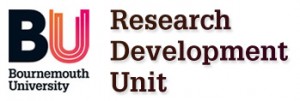
I’m pleased to confirm four significant changes to the Research Development Unit (RDU) that will take place over the coming months.
First, our name has changed from the Research Unit to the Research Development Unit (RDU) to more accurately reflect what it is we do and the services we offer.
The second group of changes are to the existing RDU team:
 My job description has been tweaked slightly and my job title remains the same – University Research Development Manager. I will continue to lead the RDU and work closely with the PVC (Research, Enterprise & Internationalisation), and be responsible for the operationalisation of BU research strategy, research policy, external research assessment returns, research management information, and R&E systems (such as RED).
My job description has been tweaked slightly and my job title remains the same – University Research Development Manager. I will continue to lead the RDU and work closely with the PVC (Research, Enterprise & Internationalisation), and be responsible for the operationalisation of BU research strategy, research policy, external research assessment returns, research management information, and R&E systems (such as RED).
Corrina Dickson’s job description has been updated and her job title changed to Senior Research Development Officer (EU). Once all of the changes have been made, Corrina will no longer be undertaking the management of the internal peer review scheme (RPRS) and all of her time will be dedicated to supporting EU funding, i.e. identifying and promoting EU funding opportunities, working with academic staff to strengthen proposals, and brokering relationships with EU bodies. This is the first time BU has had a dedicated EU support post so is an exciting time for both BU and Corrina.
Anita Somner’s job description has also been updated and her job title has been changed to Research Development Officer (REF). These changes reflect Anita’s continuing and valued role in supporting the University’s preparations for the forthcoming Research Excellence Framework (REF).
I’m sure you’ll all join me in congratulating Corrina and Anita, and wishing them well in their roles!
 The third change to the RDU is that in addition to the job description and job title changes for the existing team members, there will also be two further posts which we will seek to recruit to over the next few months:
The third change to the RDU is that in addition to the job description and job title changes for the existing team members, there will also be two further posts which we will seek to recruit to over the next few months:
Research Development Officer (Funding & Processes) – having been vacant since November 2009 due to a staff secondment this post will be advertised internally later this week. The post-holder will be responsible for ensuring our internal R&E systems (such as RED & iCOST) and pre- and post-award processes are efficient and streamlined. Other duties will include administering external R&E systems (such as Je-S, Research Professional, etc), collating R&E management information, sourcing funding opportunities and serving as Secretary for the University Research Ethics Committee.
Senior R&E Officer (Peer Review) – This is a new part-time post that will be dedicated to managing the internal peer review scheme (RPRS). The post-holder will initially be based in the Research Development Unit, mentored by Corrina, with the aim of transferring to the CRE Operations team later in calendar year. Having this post based in CRE Operations will ensure that internal peer review is embedded in the pre-award research process resulting in a much more streamlined process for academics submitting bids. This post will be advertised in May.
These are both excellent opportunities – if you would like to discuss either of them, please contact me (ext: 61208) and I will happily provide further details.
 The fourth and final change is our line management and direction which will now come from two senior posts at BU – the Pro-Vice Chancellor (Research, Enterprise & Internationalisation) (Prof Matthew Bennett) and the Head of Financial and Commercial Services (Susanne Clarke). This will ensure that there is an academic voice shaping research support and development, whilst also ensuring that research remains integrated with FCS for elements such as audit, external reporting, and R&E systems and processes.
The fourth and final change is our line management and direction which will now come from two senior posts at BU – the Pro-Vice Chancellor (Research, Enterprise & Internationalisation) (Prof Matthew Bennett) and the Head of Financial and Commercial Services (Susanne Clarke). This will ensure that there is an academic voice shaping research support and development, whilst also ensuring that research remains integrated with FCS for elements such as audit, external reporting, and R&E systems and processes.
These are really exciting changes for the Research Development Unit and we look forward to continuing to provide excellent service, support and advice for all research matters across BU.
😀 We always welcome feedback and suggestions as to how to improve our service, particulary at times such as this when there are lots of opportunities for change. If you do have any feedback or suggestions, please leave a comment to this post or email us.
Julie Northam
University Research Development Manager


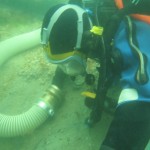 Dave Parham
Dave Parham
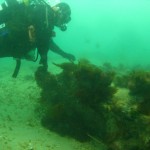 The wreck has been featured on the One Show (6 April 2011) where presenter Dan Snow took part in a dive on the wreck in the mouth of Poole Bay alongside a team of BU Marine Archaeologists, led by Dave.
The wreck has been featured on the One Show (6 April 2011) where presenter Dan Snow took part in a dive on the wreck in the mouth of Poole Bay alongside a team of BU Marine Archaeologists, led by Dave.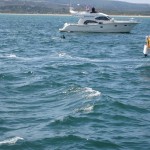 Dave will also feature in the fourth episode of Britain’s Secret Seas, The Bustling South, on 29 May at 8pm on BBC2.
Dave will also feature in the fourth episode of Britain’s Secret Seas, The Bustling South, on 29 May at 8pm on BBC2.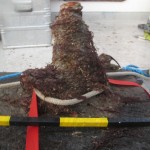 After conservation, finds from the Wreck and all the information from the excavation will be passed on to
After conservation, finds from the Wreck and all the information from the excavation will be passed on to 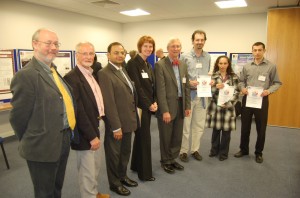
 Dr Janet Dickinson,
Dr Janet Dickinson,  6ST will provide a deep understanding of how the increasingly multiple forms of temporality and spatiality influence travel mode choices and the ways in which people and ‘things’ might be willing to share certain personal travel information. This will be achieved through the novel use of smart phone and tagging technology to provide data feeds on activity and availability, monitored through a Platform that will anticipate opportunities for connections that are then made visible to users in the social network. The contribution from Bournemouth University focuses on reducing car dependence at UK tourism destinations. A series of experiments at campsites will explore to what extent the tagging of vehicles linked to dynamic data repositories of tourists daily experiences, needs and desires can break down social barriers and facilitate more cooperation. This enhanced temporal and spatial visibility could lead to better use of public transport, lift sharing to and from attractions, and the co-ordinated movement of ‘things’ (in terms of provisions) required by the collective members of the campsite.
6ST will provide a deep understanding of how the increasingly multiple forms of temporality and spatiality influence travel mode choices and the ways in which people and ‘things’ might be willing to share certain personal travel information. This will be achieved through the novel use of smart phone and tagging technology to provide data feeds on activity and availability, monitored through a Platform that will anticipate opportunities for connections that are then made visible to users in the social network. The contribution from Bournemouth University focuses on reducing car dependence at UK tourism destinations. A series of experiments at campsites will explore to what extent the tagging of vehicles linked to dynamic data repositories of tourists daily experiences, needs and desires can break down social barriers and facilitate more cooperation. This enhanced temporal and spatial visibility could lead to better use of public transport, lift sharing to and from attractions, and the co-ordinated movement of ‘things’ (in terms of provisions) required by the collective members of the campsite. 6ST seeks to reduce energy consumption and emissions from the transport sector through an increase in adoption of sustainable travel modes and lower carbon travel choices.
6ST seeks to reduce energy consumption and emissions from the transport sector through an increase in adoption of sustainable travel modes and lower carbon travel choices.





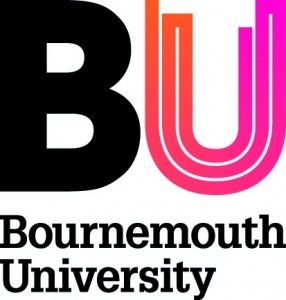




 My job description has been tweaked slightly and my job title remains the same – University Research Development Manager. I will continue to lead the RDU and work closely with the PVC (Research, Enterprise & Internationalisation), and be responsible for the operationalisation of BU research strategy, research policy, external research assessment returns, research management information, and R&E systems (such as RED).
My job description has been tweaked slightly and my job title remains the same – University Research Development Manager. I will continue to lead the RDU and work closely with the PVC (Research, Enterprise & Internationalisation), and be responsible for the operationalisation of BU research strategy, research policy, external research assessment returns, research management information, and R&E systems (such as RED). The
The  The
The 








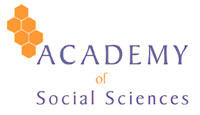
 Dr Ben Thomas
Dr Ben Thomas The Royal National Lifeboat Institution (RNLI) is a charitable organisation that provides marine search and rescue cover along the entire coast range of the UK and Ireland. Lifeboat slipway stations are an essential part of the RNLI’s coastal protection; they allow lifeboat stations to be located in areas where there is no natural harbour and for lifeboats to be launched in almost any weather conditions. However, as the size and mass of lifeboats have increased over the years the traditional wood or steel lined slipways have been shown to be insufficient, with problems of friction and wear affecting the reliability of slipway launches. New composite slipway panels have reduced these issues but high friction and wear problems remain, with replacement costs for the expensive composite panels placing strain on the RNLI’s scarce resources.
The Royal National Lifeboat Institution (RNLI) is a charitable organisation that provides marine search and rescue cover along the entire coast range of the UK and Ireland. Lifeboat slipway stations are an essential part of the RNLI’s coastal protection; they allow lifeboat stations to be located in areas where there is no natural harbour and for lifeboats to be launched in almost any weather conditions. However, as the size and mass of lifeboats have increased over the years the traditional wood or steel lined slipways have been shown to be insufficient, with problems of friction and wear affecting the reliability of slipway launches. New composite slipway panels have reduced these issues but high friction and wear problems remain, with replacement costs for the expensive composite panels placing strain on the RNLI’s scarce resources.










 Postgraduate Research Experience Survey (PRES) 2024 – Closing today
Postgraduate Research Experience Survey (PRES) 2024 – Closing today THE INNOVATION COMMON ROOM: Going Old School
THE INNOVATION COMMON ROOM: Going Old School Cybersecurity Learning through Game-Based Mechanisms
Cybersecurity Learning through Game-Based Mechanisms Nepal Study Days 2024
Nepal Study Days 2024 We can help promote your public engagement event or activity
We can help promote your public engagement event or activity Funded Public Engagement Opportunity – ESRC Festival of Social Science 2024 -Deadline for Applications Thursday 16 May
Funded Public Engagement Opportunity – ESRC Festival of Social Science 2024 -Deadline for Applications Thursday 16 May MSCA Postdoctoral Fellowships 2024
MSCA Postdoctoral Fellowships 2024 Horizon Europe News – December 2023
Horizon Europe News – December 2023